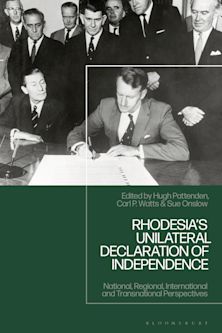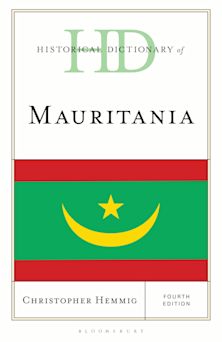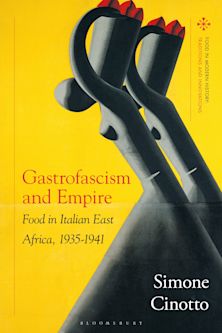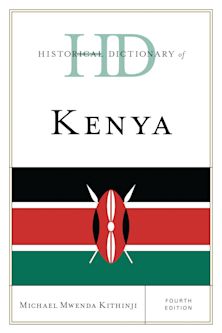- Home
- ACADEMIC
- History
- African History
- Mau Mau Crucible of War
Mau Mau Crucible of War
Statehood, National Identity, and Politics of Postcolonial Kenya
Mau Mau Crucible of War
Statehood, National Identity, and Politics of Postcolonial Kenya
You must sign in to add this item to your wishlist. Please sign in or create an account
Description
Mau Mau Crucible of War is a study of the social and cultural history of the mentalité of struggle in Kenya, which reached a high water mark during the Mau Mau war of the 1950s, but which continues to resonate in Kenya today in the ongoing demand for a decent standard of living and social justice for all. This work catalyzes intellectual debate in various disciplines regarding not just the evolution of the Kenyan state, but also, the state in Africa. It not only engages historians of colonial and postcolonial economic and political history, but also sociologists, anthropologists, political scientists, and those who study personality and social branches of psychology, postcolonialism and postmodernity, social movements, armed conflict specialists, and conflict resolution analysts.
Table of Contents
Chapter 2: White Man's Country: The Colonial Foundations and Legal Architecture of the Kenyan State
Chapter 3: Colonial Rupture: African Experiential Anxiety of Transformation in Time, Space and Place, 1900-1951
Chapter 4: '52 Minds on Kenya's Destiny: The view from “the above”
Chapter 5: Drudgery in Pyrrhic Victory: Whither the Fruits of Independence?
Chapter 6: “Matigari ma Njirungi”: Bifurcation, Atomization and Survival of the Mentalité of Struggle
Chapter 7: “Bado Mapambano,” Solidarity Forever: Latter Day Travails of Critical Publics
Chapter 8: The Long Kenyan Century: A People's Elusive Quest for “the Good Life”
Product details
| Published | Dec 09 2015 |
|---|---|
| Format | Ebook (Epub & Mobi) |
| Edition | 1st |
| Extent | 584 |
| ISBN | 9781498506991 |
| Imprint | Lexington Books |
| Illustrations | 10 b/w photos; 5 graphs; |
| Publisher | Bloomsbury Publishing |
About the contributors
Reviews
-
[T]here is much to be admired in this ambitious and unconventional approach. Githuku provides a richly detailed and passionately argued study that will be of interest to anyone who seeks to understand the making of the postcolonial state in Kenya and the continuing tensions and disaffections that lurk just beneath the surface of its modern political life.
The International Journal Of African Studies
-
[This book] offers prospective readers a richly detailed analysis of the ways in which unresolved historical problems and injustices stemming from colonialism continue to haunt contemporary Kenya.
African Affairs
-
Nicholas Githuku’s history confronts [Kenya’s] violence and its political effects head on. He asks new questions about Kenya’s history, quotes previously unexamined evidence, and offers his readers important new insights. In all this he challenges his fellow Kenyans to join him in resurrecting their local historiography.
John Lonsdale, Trinity College, Cambridge
-
To those who contend that the history of the colonial period is no longer of much consequence in recent developments and trends in Kenya and other parts of Africa, moreover, this book provides a detailed and powerful refutation.
Robert M. Maxon, West Virginia University
-
All in all, Githuku has not just opened a window into colonial and post-colonial Kenyan experiences; he has painted a highly convincing and engaging tableau of a hundred years of Kenyan history in which every aspect of the struggle for Uhuru was brought together to show that the struggle has not just taken place in the ‘forest,’ and rural parts but also in urban Kenya. He brings together both ordinary Kenyans as well as radicals who were all fighting to make sure that Uhuru does not remain elusive to them forever.
Stichproben – Vienna Journal of African Studies

ONLINE RESOURCES
Bloomsbury Collections
This book is available on Bloomsbury Collections where your library has access.


































